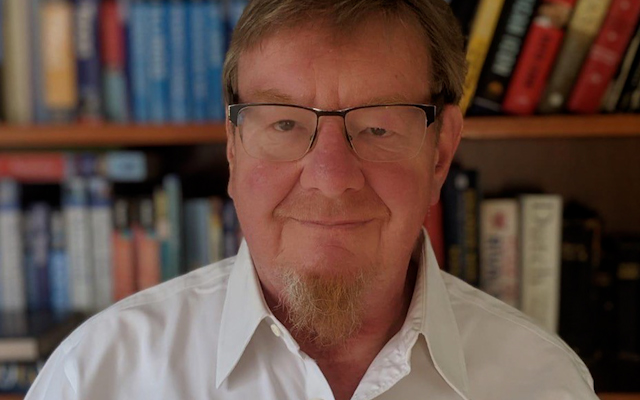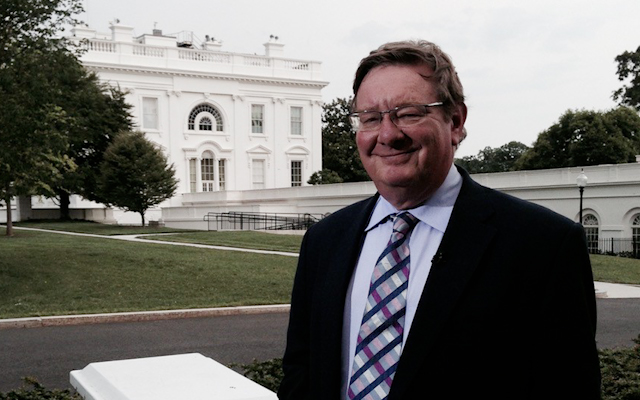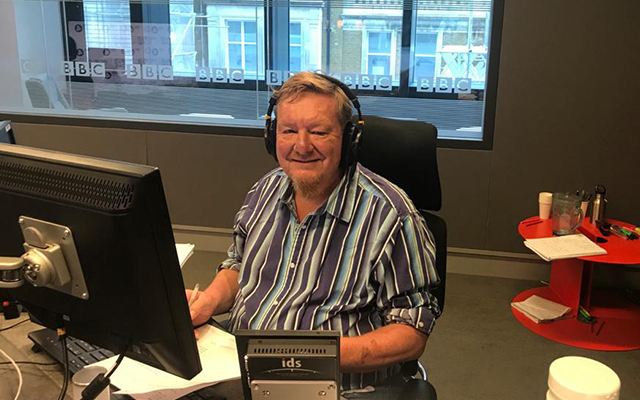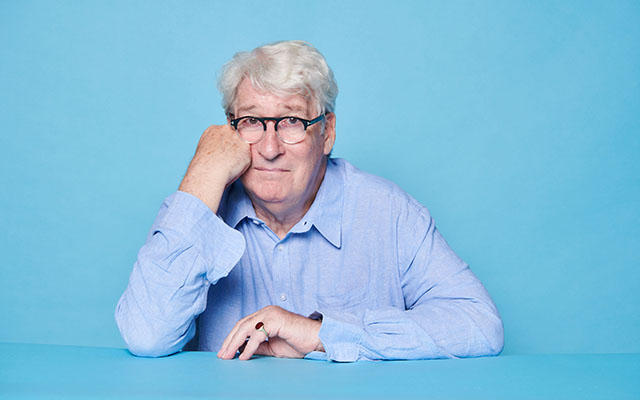
Mark Mardell has enjoyed a successful and varied career in journalism – from working as the BBC’s political correspondent to presenting the news and current affairs programme ‘The World This Weekend’. In 2022, he revealed his Parkinson’s diagnosis on a podcast. The journalist and presenter sheds light on his career – and highlights why open conversations about the condition are key
Please tell us a bit about yourself and your experience of Parkinson’s.
I’ve always worked in journalism. I started off in commercial radio in the UK, working in Teesside at BBC’s local station Radio Tees before joining Radio Aire in Leeds, then the Independent Radio News in London. After that, I went on to work as a BBC political correspondent for years.
I spent some time in Europe as the BBC’s first Europe editor, which was great fun. I also went to America, where I served as the North America editor, before returning to England around 2015. There, I presented the current affairs programmes ‘The World This Weekend’ and ‘The World at One’.
I’ve done a lot of TV over the years, but my first love was radio. The driving force of my journalistic career has been to meet people, explain what they think and travel the world.
In 2022, I was diagnosed with Parkinson’s. My experience was relatively unusual. I had spoken to people who had been to the doctor and their diagnosis had come as a complete shock to them. But before my diagnosis, I was pushing my doctors to accept that it was Parkinson’s because I had realised that something was wrong.
I found opening grocery packaging difficult. I thought to myself: ‘They are making it more difficult to get into these things – you need scissors to get them open!’ I didn’t really think: ‘Is something wrong with your fingers?’

How has your life changed since your diagnosis?
No longer driving was one of the biggest things. Changes in my voice and typing were another, given that all I’ve done throughout my life is communicate, mainly through my voice. Now I’ve got a weak voice and it gets weaker during the day.
For most of my life, I had my wife telling me: ‘You’re booming too much in public’, or ‘You’re too loud’, and now I struggle to make myself heard, literally. I can find it very frustrating in conversations because you do become slightly invisible when people can’t hear you. Typing messages and emails has also become slower – I have to do it finger by finger.
But I don’t see these changes as the enemy; I see it as the new me. The fact that I am slower is something that I have to accept. I’m determined to carry on doing the things I enjoy. I’m not very good at taking exercise but something I must do is resume yoga.
You spoke about your Parkinson’s diagnosis on a podcast. What response did you receive afterwards?
When I went on Roger Bolton’s podcast, ‘Beeb Watch’, I had said to the producer: ‘I’m going to have to mention my voice, because it does sound different to anyone who knows me.’
Even after all the years I’ve spent working in journalism, I hadn’t thought that I was a big enough name for it to be of interest to the public. But the news of my diagnosis was picked up by many papers – and then by the news and current affairs show the ‘Today Programme’.
The way that people responded was really nice – I should have realised that it would have been. Broadcaster Jeremy Paxman had his documentary ‘Paxman: Putting Up with Parkinson’s’ out the week I went public, so I think that added a bit of news interest in the way these things roll together.
Do you think people, particularly those with a following, should talk openly about their experiences with the condition?
Yes, it’s very important. I’ve always tried to be open and honest. I think it’s one of the things that makes me a journalist: I believe in sharing information. Just as people are becoming more open to talking about mental health, I think being more open to talking about Parkinson’s is a good thing. There is no shame attached to it.

Is it beneficial for the Parkinson’s community to have public figures that they can look up to?
I don’t think it’s necessarily a case of having someone to look up to, but it’s good to have a name that you might recognise. I think we all become interested when people we have heard of do something – this is really the basis of journalism.
I’ve lived with my diagnosis for coming up to a year now, and while it has been annoying and frustrating, it hasn’t been a disaster. It hasn’t plunged me into deep depression or stopped me from doing the things I really love.
I think the more people talk about these things, the more knowledge is gathered, and the more progress can be made. Certainly, with Parkinson’s, you can live a relatively full life.
What advice would you give to someone who has recently been diagnosed?
My advice would be to visit helpful websites, and meet other people with Parkinson’s and talk to them. I’m lucky that I get to meet with a group that British journalist Rory Cellan-Jones set up, where I have the chance to chat with others.
I feel very privileged to have had an active and fun life. I’m going to continue having as much fun as possible despite this condition.


